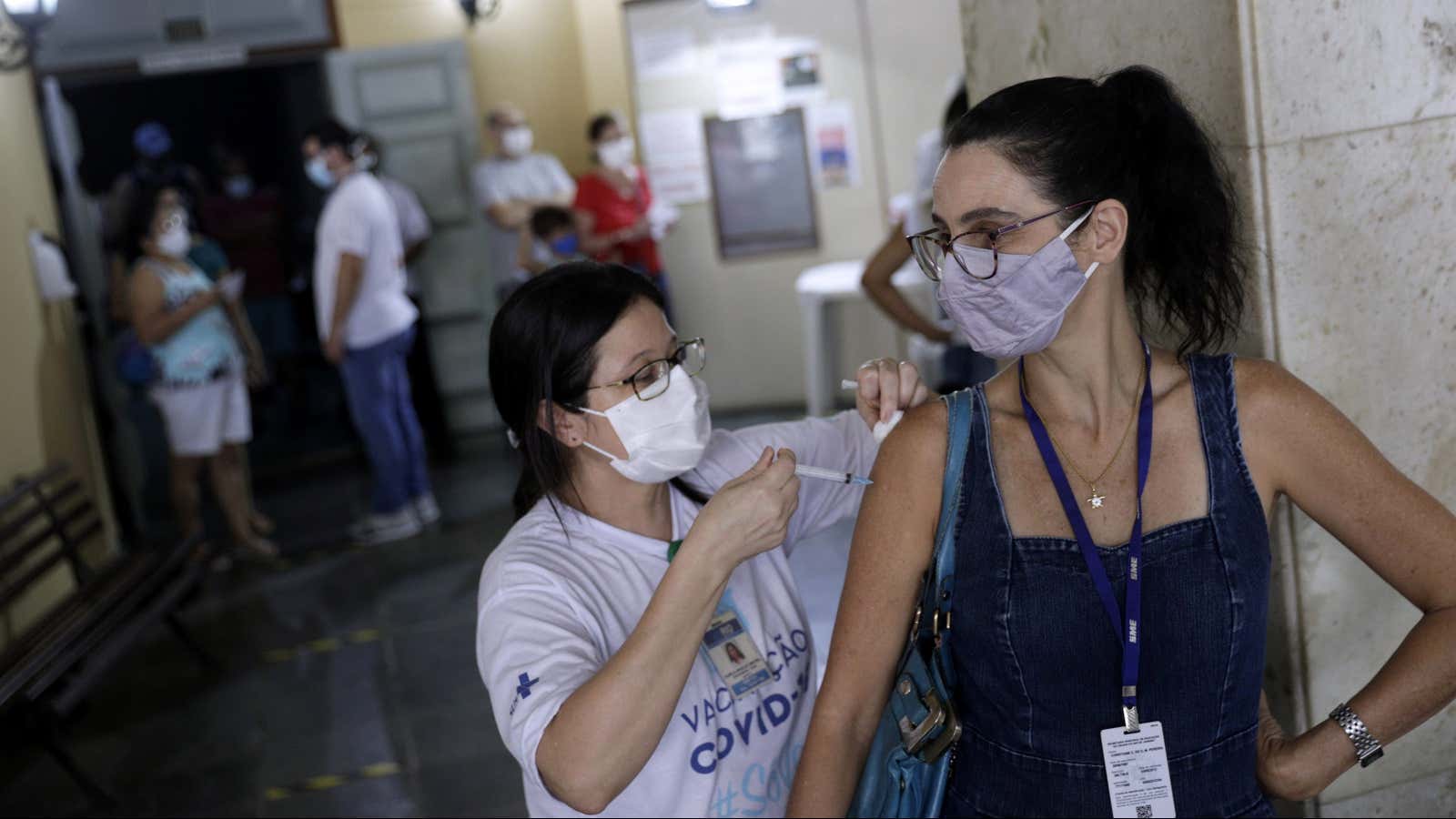There is one potential side effect of Covid-19 vaccines that has been reported consistently, and just as consistently ignored: changes to the menstrual cycles.
Women noticed a broad range of changes in their periods. In some cases, they were earlier, heavier, and more painful, while in others they were lighter and delayed. Others still experienced a mix of these changes, while a large percentage of women observed no changes, or didn’t report them. The reported changes typically affect one or just a couple of cycles.
These kinds of reports have been coming up since the beginning of the vaccine rollout, prompting health authorities in the US and abroad to address them—typically to reassure women the vaccines present no risks for fertility, or to highlight the absence of a clear connection between the vaccine and any changes in periods.
These changes are still left out of the possible side effect warning, but the reports have finally pushed the Centers for Disease Control and Prevention (CDC) to at least look into the issue, so it can confirm the potential side effect.
Why aren’t period changes listed in the vaccine side effects?
According to the US Food and Drug Administration as well as Pfizer, Moderna, and Johnson & Johnson—the three authorized vaccine manufacturers in the US—women’s consistent reports of period irregularities following the vaccine don’t represent evidence that those irregularities exist.
This is at least in part due to the nature of periods, which can be irregular for many reasons, and the little actual understanding we still have about the ways specific factors affect them. In order to identify whether the vaccine alters periods, and how, researchers would need to track them before and after the vaccine is administered, and be able to control for all the other factors—such as stress, nutrition, medications, immunological status—that might change it.
Or, one could listen to the many thousands of women who know their periods and say the vaccine has, in some ways, affected it. This is what researchers Kate Clancy of the University of Illinois and Katharine Lee of Washington University are doing. The two are documenting reports of period changes in a study, and have so far received 140,000 reports.
The researchers told NPR they received accounts from trans men on gender-affirming therapy hormones and women in menopause who experienced period-like bleeding after the vaccine, despite not having had a period in a long time—sometimes years.
Are period changes after the vaccine worrisome?
The CDC, too, is finally searching its vaccine safety database for reports of menstrual changes to try and identify how the vaccine might impact one’s period. Finding a link and sharing the information with women who are getting the vaccine would help prepare them for a potentially unpleasant side effect, and prevent unnecessary concerns.
But beyond the annoyance, discomfort, and, in some cases, pain typically associated with periods—whether affected by vaccines or otherwise—there is no reason to fear that the impact of vaccines on periods might be a sign of anything concerning.
In fact, while acknowledging the reports of altered periods, the American College of Obstetricians and Gynecologists continues to strongly recommend getting the vaccine, irrespective of period cycles.
Some doctors note that the changes might slightly affect the chances of getting pregnant during the cycles that have been disrupted. But this shouldn’t be reason enough to forgo the vaccine, as contracting Covid-19 infection while pregnant gravely increases the risk of severe infection and even death.
